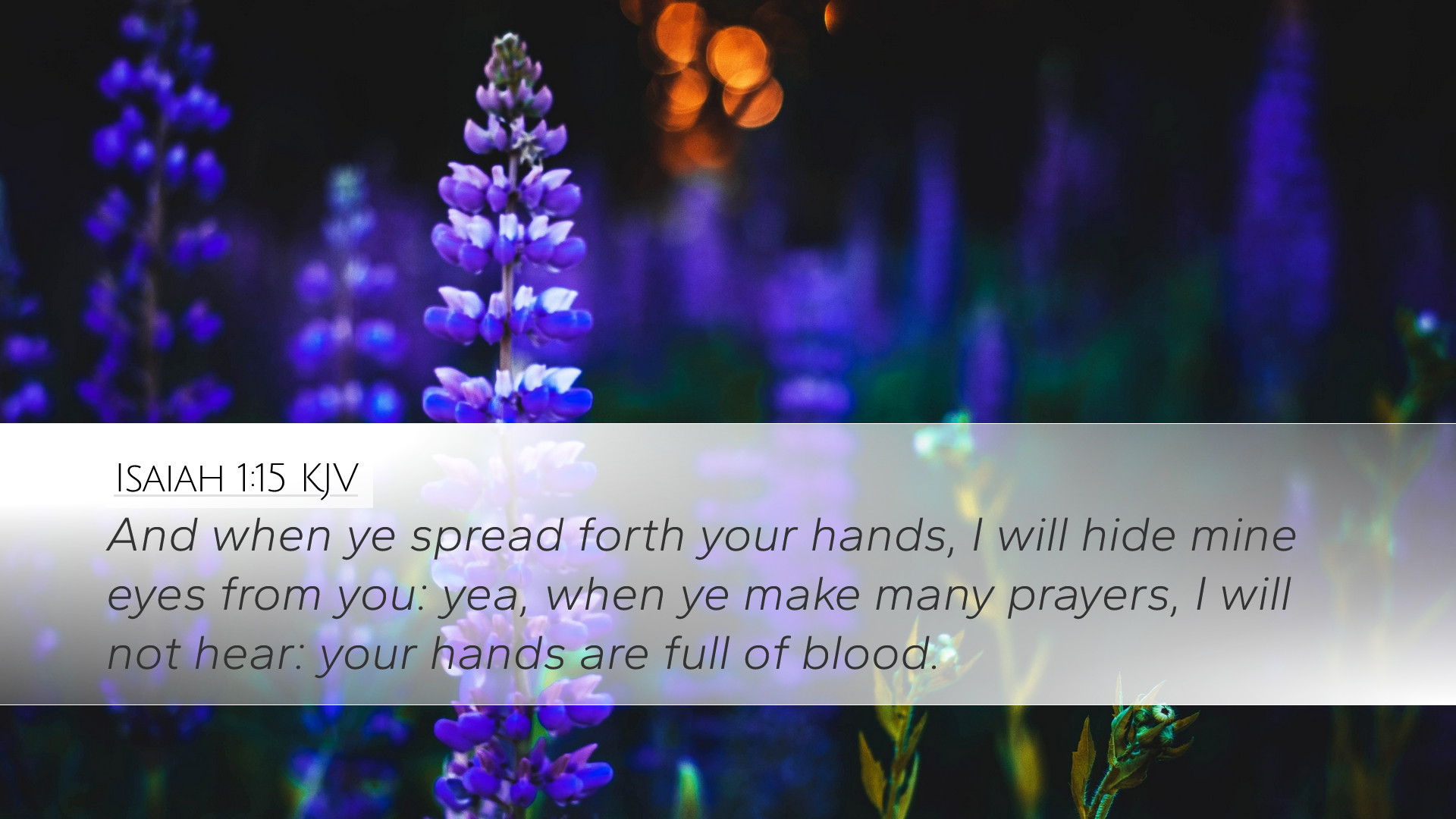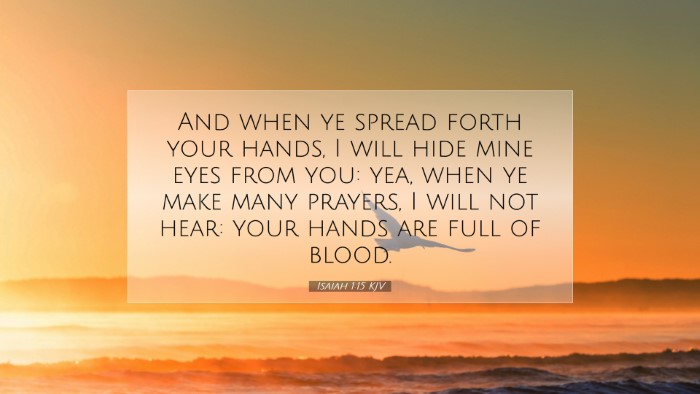Commentary on Isaiah 1:15
Verse Context
Isaiah 1:15 speaks to the Lord’s response to the prayers of a people who are engaged in formal worship while living in sin. This juxtaposition highlights the core theme of the chapter: divine displeasure directed towards hollow rituals devoid of moral integrity.
Text of Isaiah 1:15
"And when you spread out your hands in prayer, I will hide my eyes from you; even when you offer many prayers, I will not listen. Your hands are full of blood." (NIV)
Foundational Themes in Isaiah 1:15
This verse encapsulates several foundational themes that are pivotal for understanding both the immediate and broader theological messages of the Book of Isaiah:
- Divine Judgment: The verse underscores God's disapproval of superficial worship.
- Call to Authenticity: There is a strong emphasis on the need for genuine repentance and ethical living.
- God's Holiness: It reflects God's holiness and demand for purity in worship.
Insights from Public Domain Commentaries
Matthew Henry’s Commentary
Matthew Henry observes that God's hiding His face signifies His withdrawal of favor, which is particularly alarming for those who seek Him in prayer. He emphasizes that the people’s hands being full of blood indicates a life steeped in sin and violence, contrasting starkly with their religious rituals. Henry comments, “It is a common thing for men to think they can continue in sin and yet call upon God, while He abhors their very prayers.”
Albert Barnes’ Notes on the Bible
Albert Barnes expands on the metaphor of spreading out hands in prayer, explaining that it symbolizes earnestness in seeking God. Nonetheless, Barnes clearly illustrates that God is not moved by outward appearances of piety when the heart is corrupt. He writes, “It is not enough to pray; the life must correspond with the supplication. It is hypocrisy to pray to God while one’s life contradicts the very essence of what one seeks.”
Adam Clarke's Commentary
Adam Clarke offers a historical and contextual examination, likening Israel’s situation to that of many believers today who engage in religious formality without a true covenant relationship with God. He states, “Their social and ceremonial observances were rendered null and void because justice and mercy were neglected.” Clarke emphasizes that God desires a heart that is in tune with His will, not merely rituals performed without conviction.
Theological Implications
Isaiah 1:15 serves as a significant theological reflection on the nature of God’s relationship with humanity, particularly the challenges of maintaining holiness amidst the trappings of religion:
- The Nature of True Worship: True worshippers are those whose hearts align with God's desires, reflected in their actions.
- The Danger of Ritualism: Religious acts devoid of ethical groundings lead to futile worship, underscoring God’s desire for a holistic relationship.
- Intercessory Prayer: The passage reminds us that intercession cannot substitute for integrity; a community must pursue righteousness for prayer to be effective.
Application for Today
Pastors, students, and scholars can draw extensive applications from this verse for contemporary worship and life:
- Self-Examination: Regularly assess one’s life against the character of God and His commands, ensuring alignment in personal and communal worship.
- Community Engagement: Leadership must emphasize the importance of justice and compassion, combating practices that glorify ritual over relationship with God.
- Preaching Holiness: Sermons and teachings should focus not only on the acts of worship but equally on the state of the heart in relation to God’s expectations.
Conclusion
Isaiah 1:15 challenges believers to reconsider the sincerity of their worship. The insights from Matthew Henry, Albert Barnes, and Adam Clarke converge to stress that God seeks hearts that are pure and lives that reflect His holiness. For effective ministry, one must remember that true worship is inseparable from a life lived in accordance with God's righteousness.


